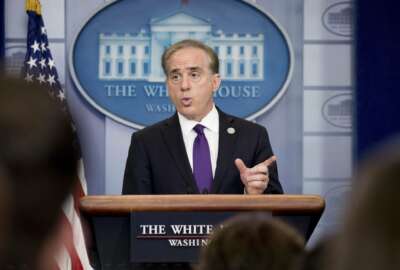
One hearing shows why Congress can’t pass a budget
If you want to get an inkling of why the federal budget process takes so long, just watch a typical budget hearing.
If you want to get an inkling of why the federal budget process takes so long, just watch a typical budget hearing. I almost said the budget process is broken. But I don’t feel that’s precisely correct. Slow and disjointed for sure, but not broken.
The hearing I refer to was no obscure, B-list event. To the contrary: The State Department 2018 budget hearing before the Senate Foreign Relations Committee yesterday featured Secretary Rex Tillerson. The committee posted a video of the two-hour hearing right afterward. It had the unfortunate timing to take place the same day Attorney General Jeff Sessions testified about … I’m not exactly sure what.
But given the media’s quivering, breathless excitement with all things TrumpRussiaComeySessions, the State Department hearing got dutiful, but not above-the-fold coverage. Roll Call focused (well below the online “fold”) on whether Tillerson agreed with President Donald Trump in pulling away from the Paris climate agreement. Understandable, since ranking member Sen. Ben Cardin (D-Md.) spent his opening statement on a broadside against the administration on Paris. Ditto for The Hill, which had the same story way down where it bunches up the unexciting material. The Washington Post also had low-down homepage coverage, but at least covered it for what it ostensibly was — a budget hearing.
Sen. Bob Corker (R-Tenn.), the committee’s chairman, praised Tillerson personally. But after Tillerson presented his workmanlike opening testimony, Corker related how he’d begun reviewing the budget proposal with his staff the day before.
“And after five minutes, I said this is a total waste of time,” Corker said.
Why? Because the budget presented “is not the budget we’re gonna deal with.” To be sure, the administration presented a surprising budget. It would cut the combined budgets of the State Department and U.S. Agency for International Development from $55.6 billion this year to $37.6 billion next year. Corker said Congress and successive administrations should stop ignoring what he called the fiscal catastrophe of entitlement spending, and trying to take any and all savings out of federal yearly operations. That’s not a question a State Department budget hearing will settle.
Yet deal with it they did.
Tillerson put the budget proposal in the context of feedback he’s getting from surveys completed by 35,000 State Department and USAID employees. He said they’re coming up with ways to work more efficiently even as management makes hard choices about what is essential to the mission. This is unverifiable until State releases survey results, which Tillerson said will be soon, promising a reorganization will get underway at the end of the calendar year. Corker noted this will be too late for the fiscal 2018 budgeting.
Tillerson, answering a question from Corker, went on at length about budget philosophy and upcoming management changes at State.
“Throughout my career, I have never believed nor have I ever experienced that the level of funding devoted to a goal is the most important factor in achieving it,” Tillerson said. “Our budget will never determine our ability to be effective. Our people will.” That sentiment runs directly opposite to conventional Washington thinking. But it will turn up as a big topic in the authorization side of the hearings.
Tillerson also gave a preview of what the listening sessions and surveys show. He said people are telling him, “There are significant layers, layering of work processes and approvals required to deliver on missions.” He added, “Some of these are imposed by State Department procedures and rules, some of them are imposed by Congress in how appropriations and programs are established and approved … duplicative layers that create real obstacles to people to deliver on missions. And it adds costs.”
People are also frustrated with personnel practices. Tillerson said, “We also heard a theme that people don’t believe they’re held accountable for work in the State Department — that poor performers are dealt with. People in the State Department know who’s getting the work done and not getting the work done.” This frustration will lead to changes in performance management and other HR reforms, he said.
The hearing moved on to other matters — actual foreign policy topics like North Korea, China, Iraq. Sen. Ed Markey (D-Mass.) objected to proposed cuts in the Bureau of International Narcotics and Law Enforcement. His question “why” came after a 10-minute dissertation about the evils of illegal fentanyl trading.
Another long discussion centered on where State has overlapping missions with other departments ranging from Homeland Security to Agriculture. Payments to the Palestinian Authority. Rangel and Pickering Fellowships. Nominations for six regional bureaus that remain unfilled.
All worthy topics, each accompanied by senatorial statements of varying length. Senators wanted to be heard as much as they wanted to hear from Tillerson. This isn’t wrong, but it devours time. Just a single, two-hour budget hearing, to be followed in the afternoon by an appropriations hearing. One committee, a dozen senators, hours with one secretary. Nevermind all of the staff markup activity taking places behind the scenes.
Watching the hearing is like a mini-course on the State Department. But it also shows how party affiliation, policy and actual service to the country get rolled into a sort of political dough ball that never stops expanding. Senators and House members may want to do good (while shredding their opponents) but they don’t seem to be aware of deadlines.
Copyright © 2025 Federal News Network. All rights reserved. This website is not intended for users located within the European Economic Area.
Tom Temin is host of the Federal Drive and has been providing insight on federal technology and management issues for more than 30 years.
Follow @tteminWFED






